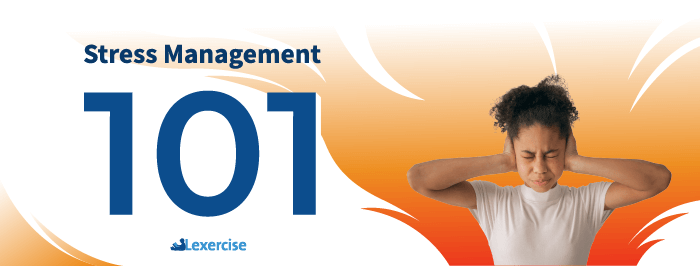Stress Management 101
Written by Sandie Barrie Blackley, MA/CCC
Published on October 1, 2021
In a recent “Best of NPR” newsletter, Christopher Dean Hopkins writes about helping young students cope with unusual conditions as they return to school. He talks about mask use and alternate settings to closed classrooms, but also, very importantly, emphasizes the presence of stress “for kids as well as grownups.”
At Lexercise we often discuss stress and anxiety, as they are among the most common features of dyslexia. In The Vortex of Dyslexia, we share why these emotions are so prevalent among children with dyslexia and other language-processing disorders. October is Dyslexia Awareness Month so this is a good time to re-examine how struggling students can manage stress and anxiety, which are typically a result of feeling out of control.
At Lexercise, our priority is helping students get the effective intervention and treatment they need to succeed and to feel in control in school and in life. In our Lexercise blog posts, and in the daily work Lexercise therapists do with students, we frequently address the importance of combining comprehensive testing and evaluation, skilled professionals, and research-based treatment—in other words, best practices—to develop the level of reading proficiency required for academic success.
Long experience has demonstrated that fun can inspire students to practice, so Lexercise designed a set of practice games that offer valuable feedback as kids learn essential skills. Enlivened by the graphics of Lexercise Lead Artist Isabel Hennes (Iszzy), our games help to produce the “mental muscle memory” needed for proficient reading.
But we know it’s not all fun and games. As Hopkins writes, when stress is “amped up” it can easily interfere with health, learning, and social interactions. So, among the colorful Lexercise games, we’ve added one called Calming Breath. A cuddly purple creature with wiggly ears demonstrates how to use the calming breath procedure to manage stress as the instructions guide the student (or parent!) through the exercise. Give it a try!
If you are stressed about your child’s skills with written or spoken words, we invite you to learn more about Lexercise therapy on our website or contact us today.
Improve Your Child’s Reading
Learn more about Lexercise today.
Schedule a FREE
15-minute consultation




Leave a comment